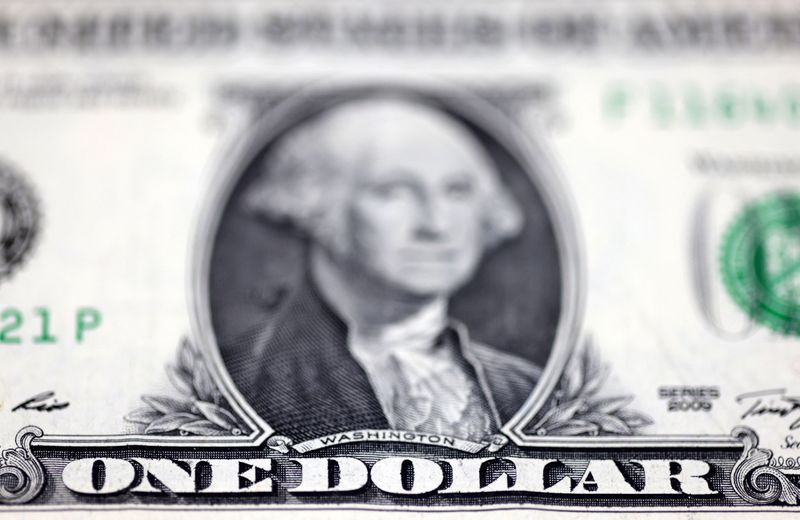By Peter Nurse
Investing.com - The U.S. dollar slipped lower in early European trade Tuesday ahead of a testimony by Federal Reserve Chair Jerome Powell before U.S. Congress, while sterling gained after signs of a resilient housing market.
At 03:10 ET (08:10 GMT), the Dollar Index, which tracks the greenback against a basket of six other currencies, traded 0.1% lower at 104.275.
Powell starts his two-day testimony before Congress later this session, starting with the Senate Banking Committee, and is likely to provide more cues on monetary policy in the coming months.
Resilience in the jobs market and stubborn inflation have prompted a number of Fed policymakers to call for more interest rate increases, keeping the policy rate higher for longer.
However, traders noted that Powell mentioned "disinflation" at his last press conference and are wary that he may try to temper the overall hawkish tone to provide the Fed with more flexibility to pursue the policies it deems necessary.
The Fed slowed the pace of rate hikes to 25 basis points at its last meeting on Feb. 1, after a 50-basis-point increase in December that came in the wake of four consecutive 75-basis-point increases.
Elsewhere, GBP/USD rose 0.1% to 1.2029 after data from mortgage lender Halifax showed that U.K. house prices rose 1.1% in February, the quickest monthly pace since June.
This points to resilience in the country's property market that may prevent a deep decline, and the difficulties associated with negative equity as interest rates rise.
EUR/USD fell 0.1% to 1.0674, having gained 0.5% overnight after Austrian central bank chief Robert Holzmann, a known hawk on the European Central Bank's Governing Council, called for interest rate increases of 50 basis points at each of its next four meetings to combat inflation.
Citigroup expects the ECB to hike rates by 50 basis points each in March and May to push its policy rates to about 4% by July.
German factory orders rose 1.0% on the month in January, much stronger than the expected 0.9% fall, while the prior month's growth was revised higher to 3.4%.
AUD/USD fell 0.6% to 0.6688, even after the Reserve Bank of Australia hiked interest rates and said it would tighten policy further to combat inflation. The central bank also noted that inflation had likely peaked, which could potentially herald an eventual slowdown in the bank's rate hike cycle.
USD/JPY fell 0.2% to 135.62 after Japan's wage growth slowed substantially in January, data showed, relieving the pressure on the Bank of Japan to tighten monetary policy.
